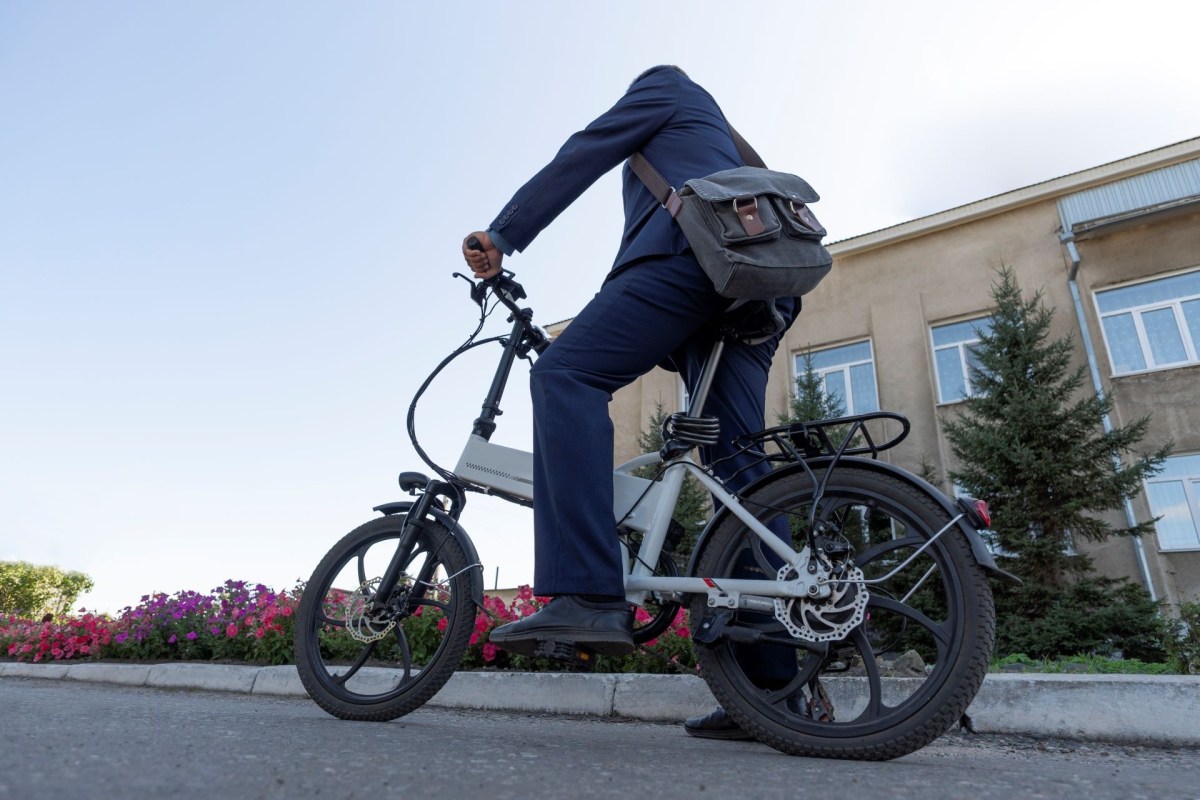Once describing herself as a "failed bike commuter," Lelac Almagor is now a champion for e-bike ownership, she explained in an interview with NPR.
Rising awareness about the harm of gasoline-powered transportation has caused a surge of interest in electric cars. But that isn't the only option, as Almagor discovered upon trying out an electric bike (e-bike) instead of a new expensive EV.
After feeling guilty about making short trips with her car and struggling to use public transportation with her kids, Almagor decided to give cycling another go — except this time, utilizing one with a rechargeable electric motor. Her family has since racked up more than 12,000 miles on their e-bikes and shows no signs of stopping.
Considering that more than half of car rides are under 3 miles, it makes sense how one could accrue that kind of mileage on a bike so quickly.
"When I think about that number, what it means most to me is how many minutes I spent having fun with my kids outside," she told NPR.
There are more benefits to e-biking than just fun. They come with numerous health benefits for communities, including taking a gas-powered car off the road. Cars are responsible for creating polluting gases like carbon dioxide that not only can cause respiratory problems, but also worsen global warming. Taking one trip a day with an e-bike instead of a conventional vehicle can reduce an individual's carbon gas production by 67%.
An entire community with e-bikes would mean a significant reduction in vehicular traffic and pollution. With this in mind, Denver, Colorado, decided to motivate the community to explore using e-bikes with a voucher system, in which eligible citizens could save anywhere from $400 to $1,200 on a new e-bike.
The results were encouraging, according to Grace Troccolo Rink, the city's executive director of the Office of Climate Action, Sustainability, and Resiliency. The program quickly ran out of vouchers due to interest, and the data collected suggested that "On average, the people who have responded are saying they are biking 26.2 miles overall per week, and they're replacing 3.4 car trips for an average of 21.6 miles of replaced car trips per week. I think that's a pretty good result."
Noa Banayan of People for Bikes believes there are opportunities at the federal level to get more people on bikes and out of cars.
"Every community should be thinking about the fastest ways to cut their emissions. It's not building out, necessarily, an electric-vehicle charging network that'll be live in five, 10 years. It's giving people an e-bike and giving them a safe place to ride it," she said to NPR.
There is certainly momentum behind cycling (for conventional and e-bikes alike). Last year, voters nationwide chose to invest more than $3 billion collectively on new bike infrastructure.
"It's about giving people choice in how they move. And if we're giving people an incentive to choose cars, electric vehicles, and not necessarily an electric bicycle, then we're locking our transportation system into the way it has been, which is really car-dominated," Banayan added.
For anyone interested in commuting in a healthier, greener way, now is a great time to consider an e-bike as a worthy alternative to a conventional car.
Join our free newsletter for easy tips to save more, waste less, and help yourself while helping the planet.









